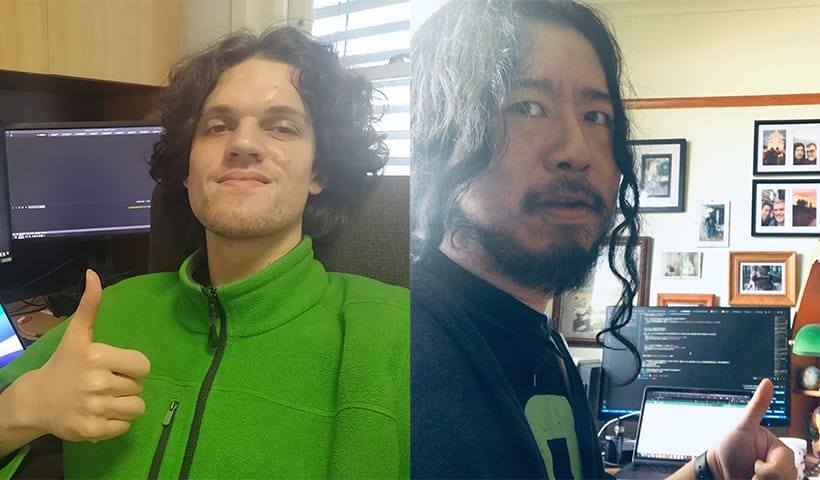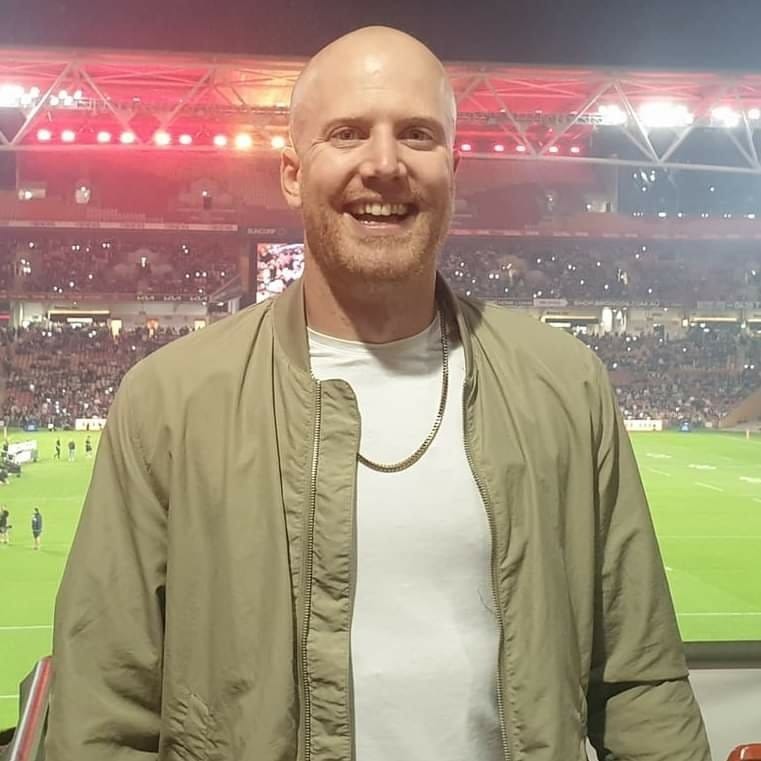2020 was supposed to be just another year of Professional Placements, aka our PaperCut Interns.
As we recently discovered in PaperCutter Milindi Kodikara’s blog , it’s tricky enough balancing full-time placement and study at RMIT , but add a pandemic on top of that? Yeesh.
Yet despite the obvious pangs for office life, our other current PaperCutter interns Leo Ye and Sebastian Smith (both studying at Swinburne University ) have had their expectations met and then some.
We had a chat with Leo and Sebastian about what their PaperCut internship has been like in the middle of a pandemic.
What was your road to becoming an intern at PaperCut?
Leo: I had been working as a nurse since 2014 until pretty much the end of the last year. I’ve worked in all sorts of environments in the community, nursing homes, and hospitals. I actually noticed a few different software packages people use. I still remember sometimes thinking, ‘That’s not very intuitive.’ I’d actually played around with programming in basic when I was younger and remembered I had a lot of fun with that. So towards the end of 2016, I got enrolled with Swinburne.
Sebastian: One of the big reasons I was looking at Swinburne, as far back as 2015, was that I knew they had this fantastic internship placement program. They had a huge emphasis on getting into the industry as a method of learning. I feel like the stuff that university teaches you is purely theoretical, but actually getting your hands dirty, getting in a work environment is the best way to actually figure out how it’s supposed to work. That’s what I was aiming for.
What were you hoping to learn at PaperCut?
Leo: I was particularly looking for internships that would teach me lots of cloud stuff. I looked around at different places, some of them were making websites, some of them were making like desktop apps for restaurants or businesses. I thought, ‘That’s nice but not the future.’ When I realized PaperCut is also actively engaged in cloud development, I was very excited.
When I started, I knew literally nothing about cloud operations. I was pretty much doing either websites or mobile apps. I had no idea how cloud apps work. Product suites like Google, I’d never used Google Cloud Platform before. I was expecting to be able to understand the structures of cloud services and how they get set up, how to maintain them, how to troubleshoot, and stuff like that. Within the last eight to nine months, I’ve learned a bit of everything.
Sebastian: I didn’t even understand enough to begin knowing what to expect from it. Coming out of university the amount of things you know are extremely basic. You can set up a page in PHP, or we had an entire subject which was just, ‘This is how you use GitHub.’ Coming into a job, I didn’t know how fast things were going to get going. How much was going to be expected of me? I felt like, ‘I don’t know anything. I’m an imposter here.’
But it really feels like there’s been a progression. When I started, I was just doing things I was comfortable with. Then I’d slowly ramp up and be given more and more tasks. I’d learned bits and pieces of things I really didn’t know. I’ve actually been given the chance to really delve into areas that I’d want to know about but hadn’t had the chance before.
Has the pandemic impacted your experience as an intern?
Leo: Not in terms of what I could learn because the tasks still just keep coming up. People are still able to communicate with Slack messages and emails. In terms of that, it hasn’t really changed. But the feeling is very different; sitting at home in front of the desk in tracky dacks. It’s very different from rocking up at the office, and feeling and looking professional. And also observing what people do day in day out is now gone.
Sebastian: The biggest impact has been the way we interact without our team. That’s such a huge part of what I get out of being at the office. I think the main reason I would love to return to the office as soon as possible, is that interaction with the team in person is just more efficient. When you’re talking over Slack or something, you can’t just tap someone on the shoulder and get half of their attention for five seconds. You have to say, ‘Okay, pay attention to me now. I need you to think this through for me.’ So there’s this increased barrier of communication. If you can’t send a text, you have to say, ‘Okay, I’m setting up a call now. Do you have 10 minutes?’ It’s not, ‘Do you have 30 seconds?’ anymore.
What’s been the highlight of your professional placement at PaperCut?
Leo: I’m very grateful that I’ve got this opportunity. The environment at PaperCut, even before remote working started, was very welcoming. There’s that probably typical tech sector casualness and I like that because there’s an attitude of inclusiveness and creativity. That is very different from working in nursing, which is a very hierarchical place. This placement has taught me a lot of things about cloud operations, which I really wanted to learn. When I just started, I knew literally nothing about cloud operations. I was worried about whether or not I will be able to understand things. But as it turned out, task after task, with people’s help like my mentor Paul and many other colleagues within cloud operations, I feel a lot more confident.
Sebastian: I mean, is it cheating just to say like the general experience of having a job? Because really that’s a huge part of it. I don’t think it would have been this easy to land myself a position of this quality just by rocking up to a place and saying, ‘Hey guys, JOB, JOB, please!’ I’m fresh out of university getting this experience, specifically, even halfway through my degree. I can continue to apply this knowledge through the rest of my degree. Just being able to attend and get this experience is so huge. It is like such an eye-opening thing in general, I’m excited that I got the chance.


